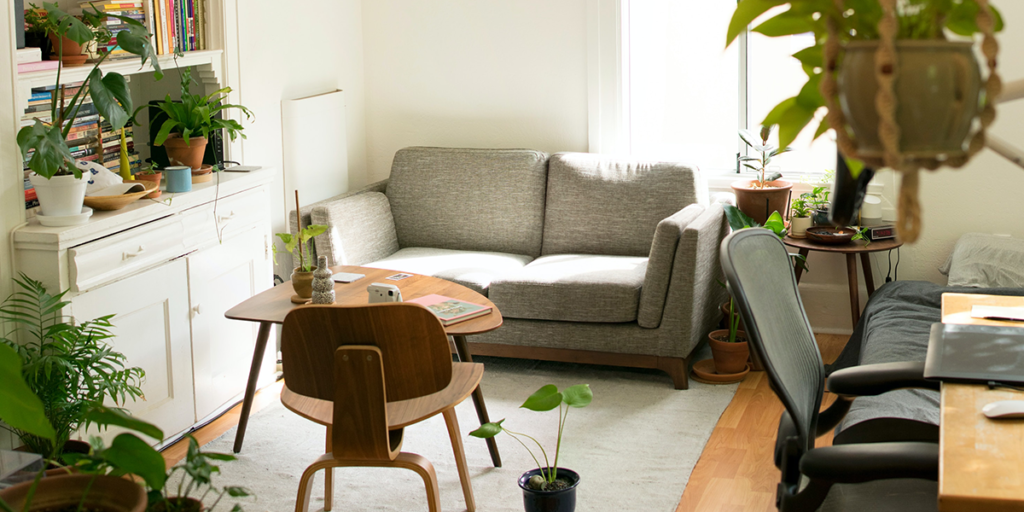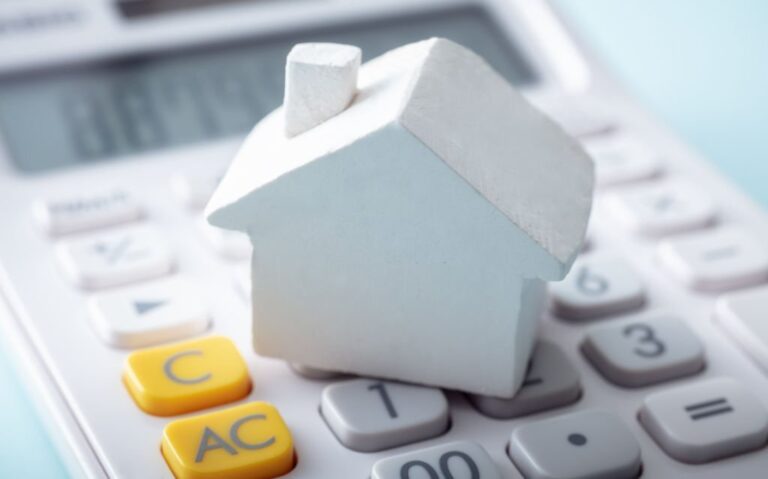Selling an apartment can be a complex process. Whether you’re a seasoned investor or a first-time seller, it’s crucial to understand each step involved. This comprehensive guide will lead you through selling an apartment, from understanding the real estate market to closing the deal.
Understanding the Real Estate Market
Before you start, you must comprehend the real estate market dynamics. This includes:
- Current market trends: Explore the latest real estate market trends, including shifting buyer preferences, the impact of remote work, and urban exodus.
- Average apartment prices in your area: Discover current average apartment prices in your area, reflecting market dynamics, property features, and local economic factors.
- Demand for similar properties: Understanding the current demand for properties similar to yours is crucial for pricing strategy and successful real estate transactions.
- Potential buyer demographics: Identify potential buyer demographics for your property, which is crucial in tailoring marketing strategies and staging for a successful sal
With this information, you can make an informed decision on when and how to sell your apartment.
Pricing Your Apartment
Pricing is a critical step in the selling process. An overpriced apartment can deter potential buyers, while an underpriced one can result in financial loss. Use these tips for pricing:
- Get a professional property appraisal: Obtain an expert evaluation of your property’s value.
- Conduct a comparative market analysis: Perform an analysis comparing your property to similar ones.
- Consider current market trends: Keep an eye on the latest trends in the real estate market.
- Preparing Your Apartment for Sale: Get your apartment sale-ready.
Preparing your apartment for sale can significantly affect how quickly it sells and at what price. Consider these steps:
- Perform necessary repairs: Boost property appeal with necessary repairs, addressing potential deal-breakers for buyers. Maximize buyer attraction with a thoroughly cleaned apartment, highlighting its upkeep.
- Deep clean the entire apartment: Create a spacious, inviting ambiance by decluttering, enhancing buyer imagination.
- Declutter to create a spacious feel: Use effective staging techniques to enhance your condo’s appeal, enticing more prospects. Stage the condo to make it appealing to potential buyers
- Marketing Your Apartment: Leverage strategic marketing initiatives to boost your apartment’s visibility in the real estate market.
Effective marketing can attract more potential buyers. Here’s how you can do it:
Some tips for how effective marketing can attract more potential buyers:
- List your apartment on online real estate platforms: Advertise your apartment on digital real estate sites.
- Utilize social media to reach a broader audience: Leverage social media to connect with a broader audience.
- Use print media for local marketing: Leverage local newspapers for marketing in your community.
- Host open houses to give buyers a natural feel of the property: Organize open house events for an authentic property experience.
- Employ a real estate agency to reach potential buyers: Engage a real estate firm to access potential buyers.
Remember, high-quality photos and detailed descriptions are crucial for your online listings.
Negotiating and Closing the Deal
When offers start coming in, it’s time to negotiate. Consider these steps:
- Evaluate each offer carefully: Thoroughly assess every proposal received.
- Consult with a real estate agent before accepting or rejecting an offer: Seek advice from a property agent before accepting or declining any proposal.
- Once you agree on a price and terms, enter into a contract: Upon mutual agreement on price and conditions, formalize it in a contract.
- Begin the escrow process: Initiate the escrow process after the contract.
- Legal and Financial Considerations: Considerations about legalities and finances.
Selling an apartment involves several legal and financial considerations:
Disclose any known issues with the property
When selling property, disclosing all known issues to potential buyers is crucial. It’s also essential to understand the potential tax implications of the sale, which can significantly impact your finances. Consulting with a real estate attorney or accountant can clarify your obligations and help avoid legal and financial mishaps. After the sale, engage in post-sale activities, such as transferring utilities and ensuring all your belongings are removed from the property, to finalize the transaction smoothly.

After the sale
Upon finalizing the sale of your apartment, specific steps are required to complete the process. Firstly, transfer all utilities out of your name to avoid future charges. Then, it’s time to officially hand over the keys to the new owner, symbolizing the change of ownership. Lastly, double-check the apartment to ensure all your personal belongings have been removed. This clears the space for the new owner and ensures no valuable items are inadvertently left behind. This tidy completion provides a smooth, professional end to the transaction.
Are Apartments Harder to Sell Than Houses?
The difficulty in selling an apartment versus a house often depends on the local real estate market. In urban areas where space is at a premium, apartments can sometimes sell faster than houses. Conversely, in suburban or rural areas where spacious homes are the norm, you might find that houses sell more quickly. Understanding your local market conditions is crucial when selling an apartment.
This Is How Do I Sell a Difficult Property?
Selling a problematic property, including a unique or unusual apartment, requires a strategic approach:
- Price it Right: A competitive price can attract potential buyers to your apartment.
- Highlight the Positives: Focus on the unique features that make your apartment stand out.
- Make Improvements: Addressing any significant issues can increase your apartment’s appeal.
- Finally, be Patient: Finding the right buyer for a complex property might take longer than a typical sale.
Do You Need a Broker to Sell an Apartment?
While you can sell an apartment without a broker, having one can make the process more manageable. A broker can offer expert advice, market your apartment effectively, handle negotiations, and guide you through the legal and financial aspects of the sale.
Should I Sell or Rent Out My Apartment?
Deciding whether to sell or rent out your apartment depends on several factors, including your financial situation, the rental market, and your willingness to manage a rental property. Renting out your apartment could provide a steady income stream, while selling can provide a lump sum for immediate use.
How Do I Sell My Property Discreetly?
Selling an apartment discreetly can be accomplished in several ways:
- Private Listings: List your property privately, meaning it’s not advertised publicly.
- Direct Contact: Reach out to potential buyers or real estate investors directly.
- Use a Realtor: A realtor can discretely market your apartment to their network of clients.
Is It Harder to Sell an Empty Property?
An empty apartment can be harder to sell because it may appear less inviting. However, staging the condo, either physically or virtually, can make it more appealing by helping potential buyers visualize living there.
How Can You Sell Your Flat Fast?
Selling your flat quickly requires strategic planning and intelligent decision-making. First, price it competitively by conducting a market analysis or hiring a professional appraiser. Next, prepare your flat for sale by doing necessary repairs and deep cleaning. Consider staging to make it more appealing to potential buyers. Use high-quality photos and compelling descriptions in your online and offline listings. Promote your flat through various channels, including social media platforms and local real estate agencies. Lastly, be responsive and flexible when scheduling viewings to accommodate interested buyers.
How Do You Sell Your Flat Yourself?
Selling your flat yourself or For Sale By the Owner (FSBO), can save you from paying real estate agent commissions. Start by pricing your flat appropriately, using local market data or a professional appraisal. Prepare your flat for sale, making necessary repairs and sprucing up its appearance. Market your flat effectively using online platforms, local newspapers, and yard signs. Be ready to handle inquiries, showings, and negotiations yourself. Lastly, ensure you understand the legal requirements of selling a property in your area, or consider hiring a real estate attorney to assist with the paperwork.
What is the Difference Between an Apartment and a Flat?
“apartment” and “flat” are often used interchangeably to describe a self-contained housing unit that occupies only part of a building. The main difference lies in regional usage. “Apartment” is commonly used in North America, while “flat” is more prevalent in British English, and used in the UK, Ireland, and other Commonwealth countries. Both terms describe a similar type of residential property, typically with shared common areas and multiple similar units within a larger building.
What is the Difference Between an Apartment and a Condo?
An apartment and a condo refer to individual units within a larger residential building, but they differ in ownership. An apartment is typically rented from a landlord or property management company that owns the entire building or complex. On the other hand, a condominium, or condo, is individually owned. When you buy a condo, you own the interior of your specific unit and share ownership of common areas, such as hallways, amenities, and external structures, with other condo owners in the building. Moreover, condo owners usually pay a monthly fee to a homeowner’s association (HOA) to maintain these shared spaces. The rights, responsibilities, and costs for tenants and owners can vary significantly between apartments and condos.
Frequently Asked Questions:
How do you figure out your finances?
Determine your net proceeds, consider potential expenses, and consult a financial advisor for tax guidance and economic implications.
How do you decide if you should sell?
Evaluate your financial situation, consider market conditions, assess lifestyle changes, and align with your long-term goals.
What are the steps in a house sale?
Prepare the house, market the property, receive offers and negotiate, accept a request, complete due diligence, finalize the sale, and close the deal.
Should I sell or rent out my apartment?
Choosing between selling or renting depends on your financial situation, the rental market, and willingness to manage a rental property.
Do you need a broker to sell an apartment?
While not mandatory, a broker can provide expert advice, handle negotiations, and simplify the selling process, making it more manageable.
How do I sell a difficult property?
For complex properties, set a competitive price, highlight unique features, make necessary improvements, and exhibit patience for the right buyer.
Are apartments harder to sell than houses?
Selling difficulty varies depending on local market trends; apartments often sell faster in urban, high-density areas.




